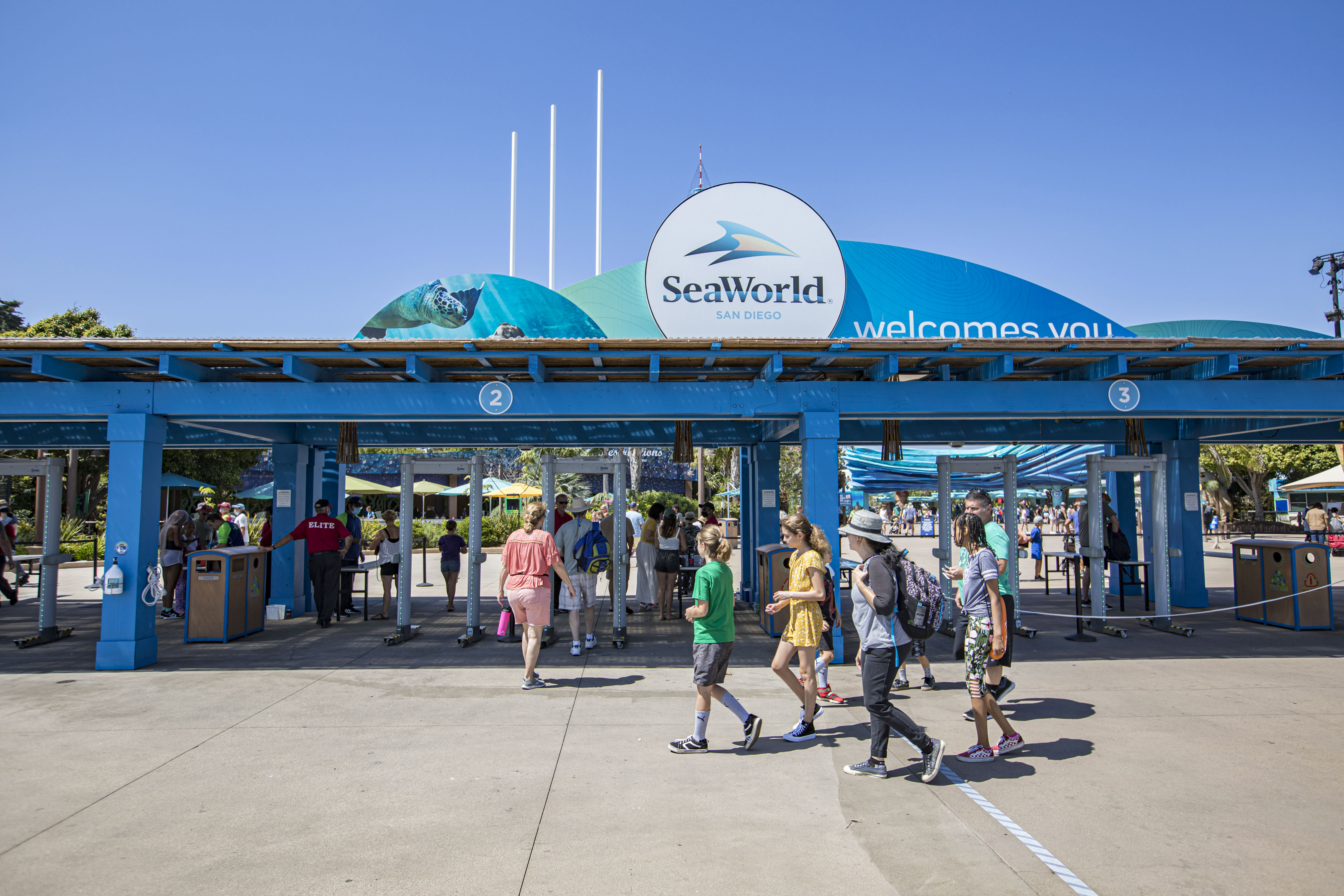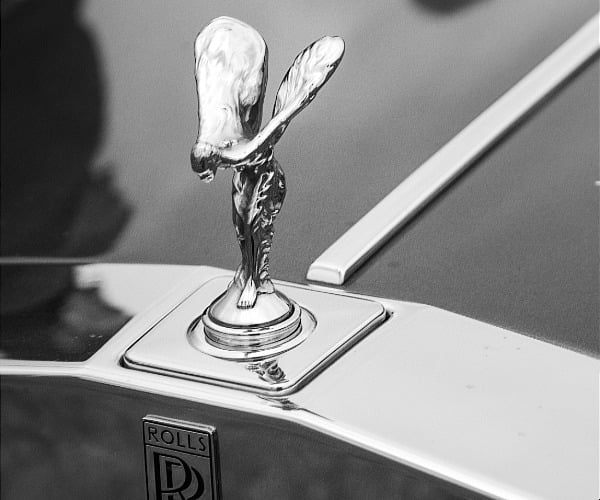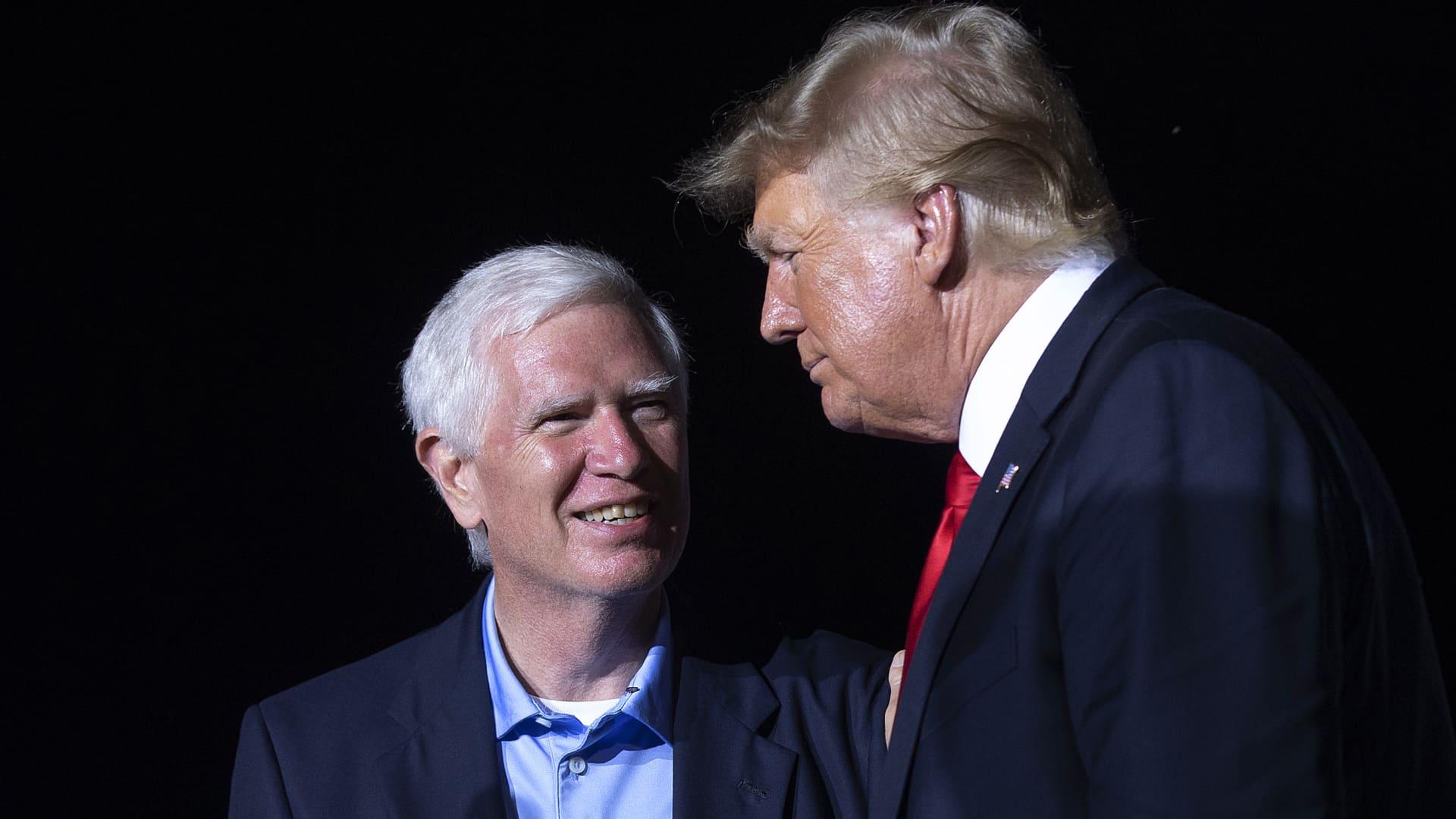SeaWorld's bid for Cedar Fair 'makes sense,' but it may have to pay more
Theme park experts aren't surprised that SeaWorld is looking to acquire Cedar Fair, but the price might not be right, yet.

Guests ride the Bayside Skyride at SeaWorld on July 20, 2021 in San Diego, California.
Daniel Knighton | Getty Images Entertainment | Getty Images
Theme park experts aren't surprised that SeaWorld is looking to acquire Cedar Fair, but the price might not be right, yet.
The company's bold proposal, one that is reportedly worth $3.4 billion, would significantly strengthen SeaWorld's foothold in an industry that is dominated by only a handful of players.
"The more we think about this potential deal, the more it makes total sense to us," Stifel analyst Steven Wieczynski wrote in a research note published Tuesday.
Combining SeaWorld and Cedar Fair's assets, which would be have more than 20 parks, means SeaWorld would have the potential to generate $3.4 billion in revenue in 2023, he said.
Cedar Fair is one of the largest regional theme park operators in the world, with a market cap of $2.82 billion. For comparison, SeaWorld has a market cap of $4.6 billion.
"In our opinion, [SeaWorld] has lacked a more robust geographical footprint and lack of season pass penetration," Wieczynski wrote. "Acquiring [Cedar Fair] would give them a bigger presence across North America and would allow them to more effectively cross market some of their bigger assets."
SeaWorld, which also owns Busch Gardens and Sesame Place, has long battled perceptions of its animal-based amusement business. Adding Cedar Fair's parks, which include Knott's Berry Farm and California Great America, would diversify its portfolio and diminish its reliance on animal attractions, Wieczynski said.
SeaWorld would also benefit from Cedar Fair's undeveloped land portfolio, which includes around 1,400 acres around its theme parks. This could be used to develop hotels, sports complexes or water parks, among other ventures.
"Given the extremely high barriers to entry (e.g., land availability, permitting and building restrictions, high construction costs, etc.) coupled with the strong regional loyalty created by seasonal/annual pass subscriptions, we have always viewed the regional theme park segment as ripe for further consolidation," Eric Wold, analyst at B. Riley Securities, wrote in a research note published Wednesday. "Especially when attractive revenue and cost synergies are taken into consideration to boost returns."
In recent years, there have been many attempts by theme park chains to buy each other out. In 2019, Cedar Fair rebuffed a $4 billion offer from Six Flags for around $70 per share. U.K-based Merlin Entertainments, which owns Legoland and Madame Tussauds, quashed reports in 2017 that it was considering a bid for SeaWorld.
SeaWorld's current bid reportedly offers Cedar Fair $60 per share, or an enterprise value of around $5.8 billion. Expectations are that attendance rates will continue to rise and even surpass prepandemic levels by next year, meaning the bid could be too low to entice Cedar Fair to agree.
"We believe acquiring [Cedar Fair] at $60 a share would represent a very favorable deal for [SeaWorld] shareholders given the potential accretion that could be realized," Wieczynski said. "Based on our math, we believe SeaWorld could offer upwards of $70 to $80 [a share] before the deal would become less valuable."
Shares of Cedar Fair were up nearly 4% Wednesday, reaching a 52-week high of $58.49.

 Tekef
Tekef 































